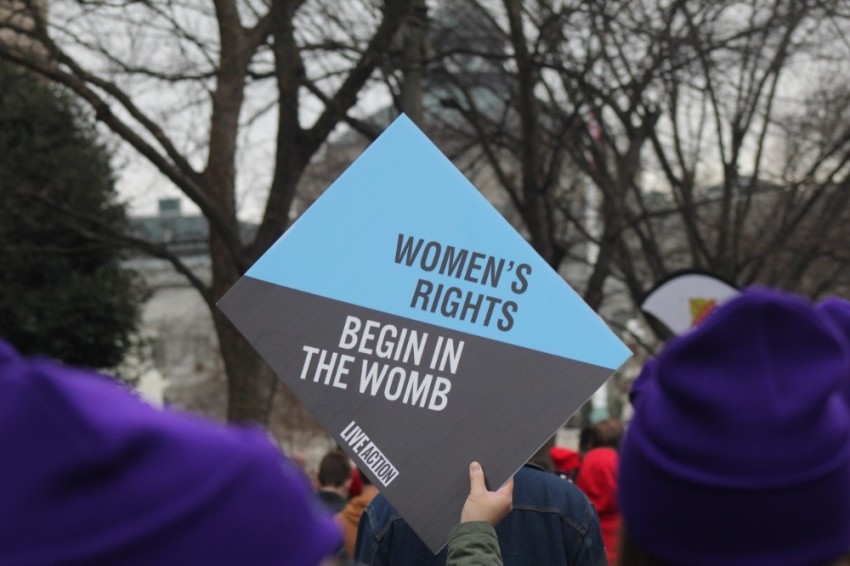Indiana law requiring clinics to report abortion complications upheld by 7th Circuit

Pro-life groups and conservative politicians are cheering after a federal court of appeals upholding part of an Indiana law requiring abortion facilities to report any complications from abortions taking place at their clinics to the state.
The Seventh Circuit Court of Appeals, based in Chicago, ruled in favor of the state of Indiana Monday, rejecting Planned Parenthood of Indiana and Kentucky’s argument that the Complications Statute of Senate Enrolled Act No. 340, signed into law in 2018, was “unconstitutionally vague.”
Judge Amy St. Eve, appointed to the bench by former President Donald Trump, crafted the majority opinion while a Democrat-appointed judge authored a dissent. Indiana’s pro-life community quickly rejoiced.
“We’re thrilled to see the Seventh Circuit rule in favor of this common-sense abortion Complications Statute and against abortion-rights extremists,” said Indiana Right to Life President Mike Fletcher in a statement. “Abortionists and hospitals should have to report complications related to abortion, as women have a right to know the serious harm an abortion could do to them, both physically and mentally.”
Indiana’s Republican Attorney General Todd Rokita said on Twitter that decision is “a huge win for the safety of women.” According to Rokita, “Complications from abortion have been notoriously difficult to track, resulting in a skewed understanding of the danger abortion poses to women.”
After characterizing the “enforcement of this reporting law” as “a big step in the direction of collecting accurate data on the harms abortion causes,” he vowed to continue to “fight tirelessly for the rights of the unborn.”
This decision by the Seventh Circuit is a huge win for the safety of women. Complications from abortion have been notoriously difficult to track, resulting in a skewed understanding of the danger abortion poses to women. https://t.co/FPLPNDUo4Q
— Todd Rokita (@AGToddRokita) August 5, 2021
Following Monday’s decision, the case will head back to the district court level, where a judge will address other concerns about the law that the three-judge appellate court panel did not weigh.
The local affiliate of Planned Parenthood first filed a lawsuit against the law in 2018, about a month after it was signed by Indiana’s Republican Gov. Eric Holcomb. The abortion provider took issue with both the complications statute and the inspection statute of the law.
The complications statute mandated that physicians report “any adverse physical or psychological condition arising from the induction or performance of an abortion." The inspection statute required abortion facilities to submit to annual inspections conducted by the state.
A lower court judge rejected Planned Parenthood’s request to nullify the inspection statute but agreed with the organization that the complications statute was “unconstitutionally vague.”
The complications statute outlined a list of adverse events that necessitated reporting, including uterine perforation, infection, cardiac arrest, renal failure, coma, an allergic reaction to abortion-inducing drugs and death. Failure to report adverse events constituted a Class B misdemeanor punishable by up to six months in prison and $1,000 in fines.
Initially, the list of adverse events was painted as “illustrative,” meaning it did not include a list of every possible complication that could constitute an adverse effect. However, in 2019, the statute was revised so that the list of adverse events became “exhaustive,” meaning that only the complications highlighted on the list would qualify as adverse events.
While Monday’s ruling reversed the lower court decision finding the complications statute unconstitutionally vague, it left some of Planned Parenthood’s other complaints about the law for the lower court to decide. Specifically, the abortion provider alleged that “the Complications Statute is both irrational and violates due process.”
Noting that the lower court “did not take up those arguments after finding that the Statute was unconstitutionally vague,” the appeals court judges took no position on those arguments and remanded them to the district court.
Monday’s decision comes as the U.S. Supreme Court prepares to hear oral arguments in Dobbs v. Jackson Women’s Health Organization, billed as a significant opportunity to chip away at the 1973 Roe v. Wade decision that legalized abortion nationwide. That case centers around Mississippi's 15-week abortion ban, and a decision is expected next spring.
Ryan Foley is a reporter for The Christian Post. He can be reached at: ryan.foley@christianpost.com



























